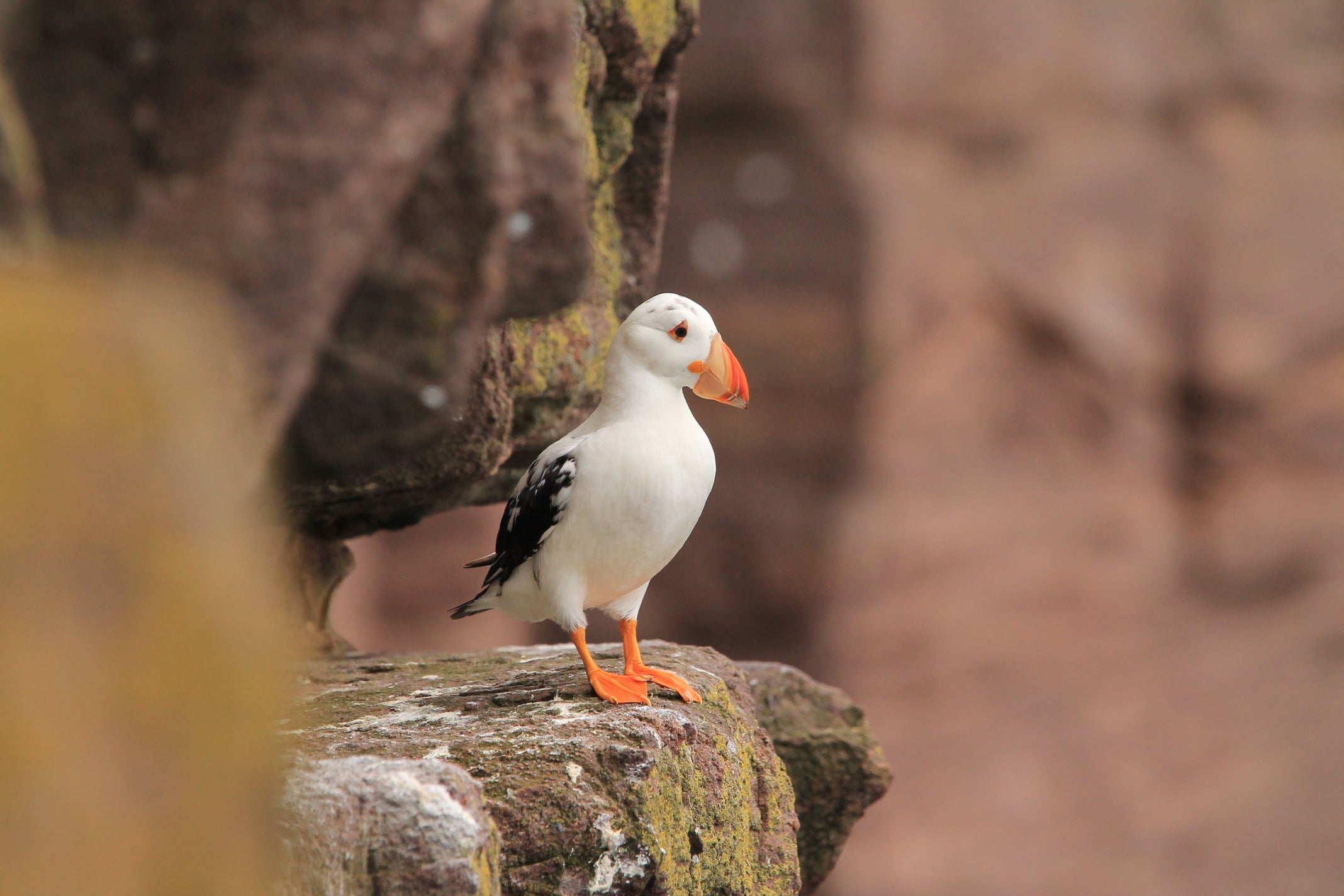‘Very rare’ white puffin spotted on remote Handa Island in northern Scotland
The rangers said the bird’s late arrival and behaviour indicate it is young and not ready to breed.

The Scottish Wildlife Trust rangers spotted a rare white puffin on the remote Handa Island in northern Scotland.
With only a few black feathers and a large orange bill, the rare bird’s distinctive look is due to the genetic condition leucism - an abnormal condition of reduced pigmentation affecting birds as well as mammals and reptiles.
The rangers first saw the bird on the island in mid-June and said its late arrival and behaviour indicate it is young and not ready to breed.
“When you live and work on Handa, you are surrounded by amazing wildlife all the time, but this leucistic puffin is one of the most unusual things I’ve seen in my three seasons on the island,” said Erika Faggiani, Handa ranger at the Scottish Wildlife Trust.
Faggiani said there are only a small number of reports of leucism at seabird colonies around the UK, including one puffin which bred on Handa in 2018 and 2019, which had light brown feathers instead of black.
“The puffin has only been seen occasionally, and it seems to be spending the most time in areas where members of the public could not easily spot it,” Faggiani said.
Still, visitors can look forward to seeing and hearing crowds of seabirds, including puffins, guillemots and razorbills, on the reserve’s tall cliffs, she added.
Puffins spend most of the year at sea and come ashore in spring to breed, nesting in cliff-top burrows.
The birds, nicknamed “clowns of the sea”, can fly at up to 55mph, beating their wings 400 times a minute. Puffins are vulnerable to extinction due to the decline in sand eels, one of their most important food sources, from climate change and overfishing.
Additional reporting by PA Scotland
Join our commenting forum
Join thought-provoking conversations, follow other Independent readers and see their replies
Comments
Bookmark popover
Removed from bookmarks